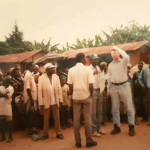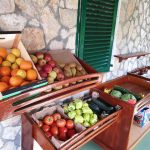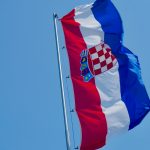ZAGREB, January 21, 2019 – The leader of the Democratic Action Party of Croatia (SDA), Armin Hodžić, said on Sunday that the Bosniak minority in Croatia was dissatisfied with its status and that this was partly due to the fact that their MP Ermina Lekaj Prljaskaj was a poor representative of their interests in the Croatian Parliament.
“As representatives of the Bosniak minority in Croatia, we always point out that their status is very bad,” Hodžić told a press conference in Zagreb.
He noted that the Bosniaks are the second largest minority in Croatia, with over 31,500 people, but despite this they share their constituency with four other ethnic groups – Albanians, Macedonians, Montenegrins and Slovenians. In the 2015/2016 election, they lost the possibility of having their own representative in the Croatian Parliament, he added.
“A few years ago, the Bosniaks lost their voice in Croatia. They lost the possibility of articulating their views and interests and presenting them institutionally. In the current circumstances, the Bosniaks in Croatia are not a second-category but a third-category minority,” the SDA leader said.
Dissatisfied with the representation of the Bosniaks in the present parliament by independent MP Ermina Lekaj Prljaskaj, Hodžić said he would run for the position of Bosniak MP in the next parliamentary election in Constituency 12, which is designed for the ethnic minorities.
The chairman of the Bosniak Minority Council in Zagreb, Harun Omerbašić, criticised Lekaj Prljaskaj for the lack of interest, poor performance and avoiding communication, adding that despite that the doors of Bosniak minority representatives remained open to cooperation with her. “We take this opportunity to call on her to open the door of her office and start cooperating with legitimate representatives of the Bosniak minority in Croatia,” Omerbašić said.
Hodžić also commented on current relations between Croatia and Bosnia and Herzegovina, welcoming the statements by the Croatian state leadership that Croatia was Bosnia and Herzegovina’s greatest friend. He, however, noted that these statements should be “implemented in practice.”
The problem, in his opinion, is that Croatia’s leadership receives information about the situation in Bosnia and Herzegovina “only through one channel, the Croatian Democratic Union of Bosnia and Herzegovina (HDZ BH) and its leader Dragan Čović.”
Hodžić said that Čović’s latest political actions had shown that problems between the Bosnian Croats and Bosniaks were not insurmountable. He noted that Čović’s attendance at the celebration of Republika Srpska Day was his first since this day was declared unconstitutional, “which paints a completely different picture and sends a completely different message from what had happened before.”
“I think this is not in line with the foreign policy of Croatia as an EU member state. That’s why I hope that the Croatian state leadership will realise that it is necessary to ensure dialogue between legal and legitimate representatives of the Bosniaks in Bosnia and Herzegovina and all others who represent both the Croats and Serbs, and that common ground and a consensus will be reached on vital issues that have come to the fore lately,” Hodžić said.
“This will not happen if war criminals continue to be glorified in Bosnia and Herzegovina, if city squares and schools continue to be named after convicted war criminals, and if insults on ethnic and religious grounds continue,” he added, noting that had received threats and hateful messages because of his political engagement.
The press was also briefly addressed by Salih Huremović, the head of the SDA branch in Velika Gorica, who had been decorated for his role in the Homeland War and 1995’s Operation Storm.
Huremović said that 25,000 Bosniaks had been involved in the 1991-1995 war in Croatia, of whom 1,180 had been killed, several hundred wounded and nearly 100 left fully disabled. “These figures cannot and should not be ignored. Unfortunately, this sacrifice is not appropriately recognised and marked today,” he said.
More news on the status of Croatia’s national minorities can be found in the Politics section.







